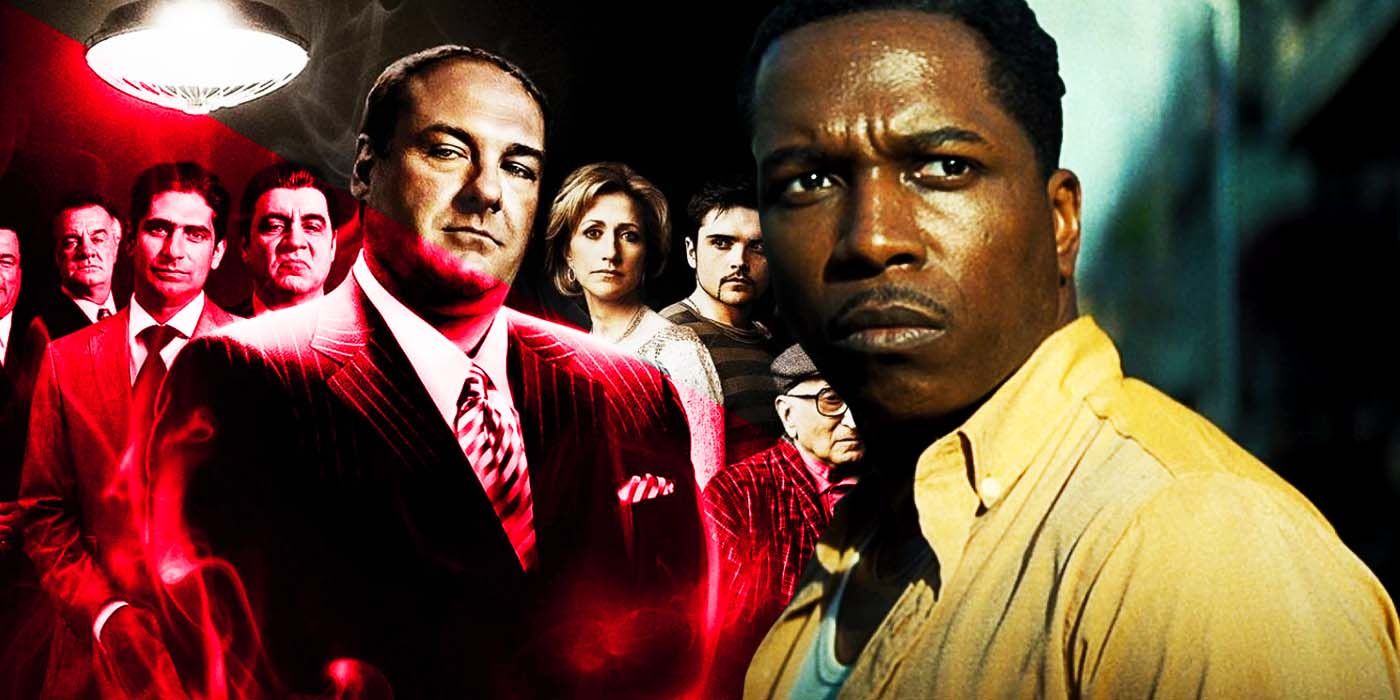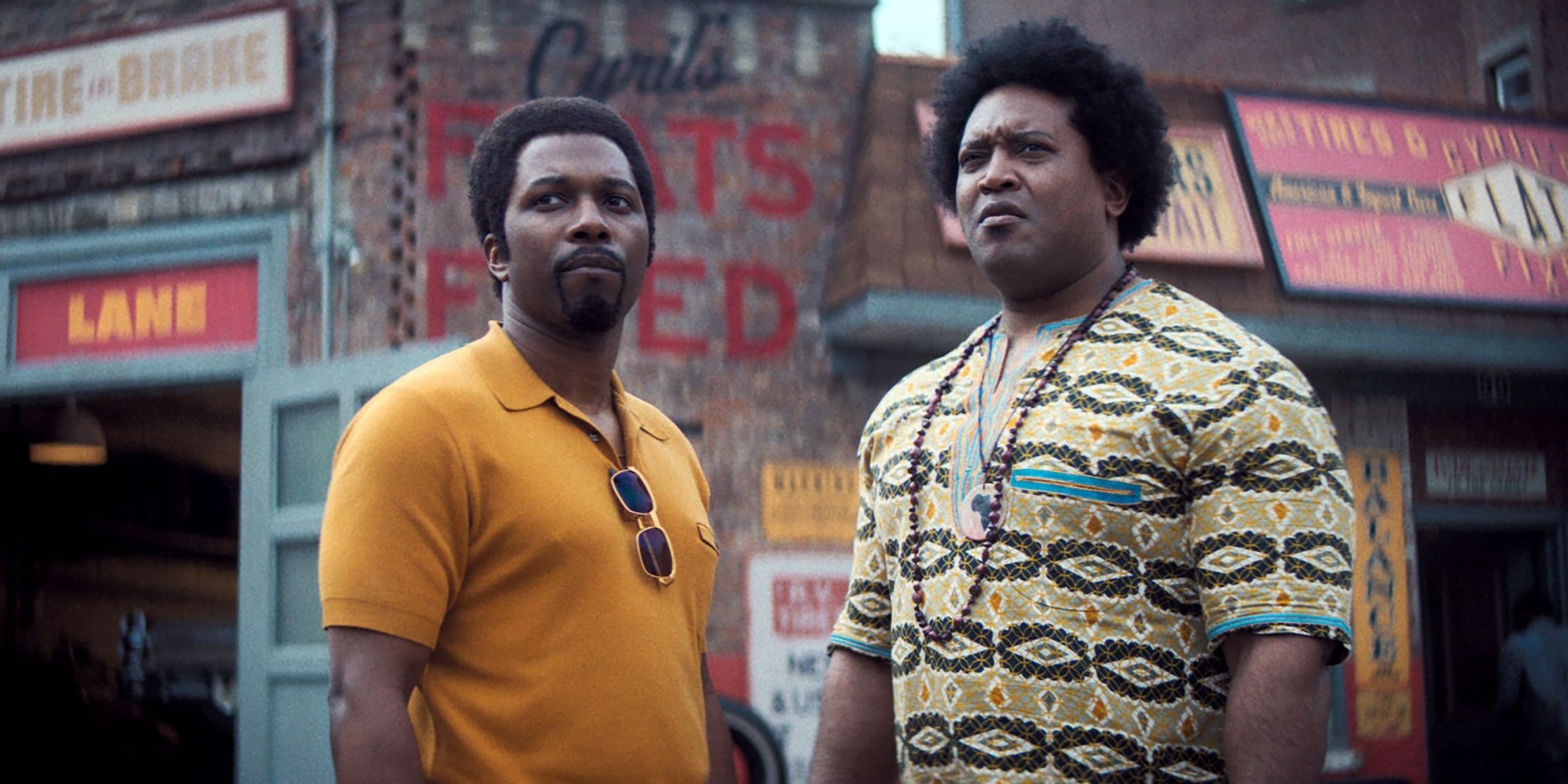
Warning! SPOILERS for The Many Saints Of Newark
In The Many Saints of Newark, Harold McBrayer (Leslie Odom Jr.) has a commanding presence throughout the story as Dickie Moltisanti's (Alessandro Nivaro) increasingly troublesome frenemy -- but is Harold in the original Sopranos HBO TV show? As a pivotal character in the events portrayed in The Many Saints of Newark, his future activities between the prequel movie and the hit TV show of the 2000's naturally draw intrigue, as it's made clear at the end of the film that Harold not only survives but seems to be on the rise in the world of organized crime.
During the introduction of Harold's character, it's clear that there's history between Harold and Dickie, the leading mobster protagonist of The Many Saints of Newark. Throughout the movie, especially as racial tensions reach a boiling point in '60s and '70s New Jersey, Harold goes from being one of Dickie's close associates to a rival mob boss -- one who takes out several of Dickie's fellow mobsters and henchmen while also having an affair with Dickie's Italian mistress. No doubt, the schism between Harold and Dickie is intended to represent a greater shift between white and black America following the culture-shifting Civil Rights Movements of the '60s. With the reconfiguration of polite society, regarding new attitudes towards race, also comes a reconfiguration of the criminal underworld, as manifested in Harold and Dickie's violent arch-rivalry.
However, despite being an impactful character in The Many Saints of Newark, Harold is completely new to the franchise, having zero appearances or mentions in The Sopranos. While the Newark riots in The Many Saints of Newark's opening that serve as the tumultuous backdrop for much of the prequel film's first act were based on real-life historical events, these riots feel contemporary and reflective of today's race-related riots and protests. Certainly, the introduction of Harold to The Sopranos' mythology was intended to reflect both post-Civil Rights Newark and today's post-BLM America.

While The Many Saints of Newark directly confronts race issues in the United States, The Sopranos tackled race from an inverse angle: "deracination," or the removal from one's native environment or culture. This theme of deracination played out mostly in The Sopranos with the Italian-American mobsters' insecurities surrounding their own heritage, or Italian authenticity -- an insecurity that became perhaps most apparent in "Commendatori" (season 2, episode 4), when Tony and his henchman visit Italy, which only leaves them feeling like vulgar, culturally uprooted Americans.
Should creator and producer David Chase continue The Sopranos timeline beyond The Many Saints of Newark, namely with Harold's character, it'd be interesting to see how he connects the explicit racial tension of the prequel to the turn-of-the-millennium's conditions of deracination that seemingly preoccupied Chase during the 2000s. For now, without any mention of Harold in The Sopranos, audiences will have to rely on pure speculation for Harold's narrative trajectory following the events of The Many Saints of Newark.
https://ift.tt/3FoIQoO
October 04, 2021 at 01:32AM




